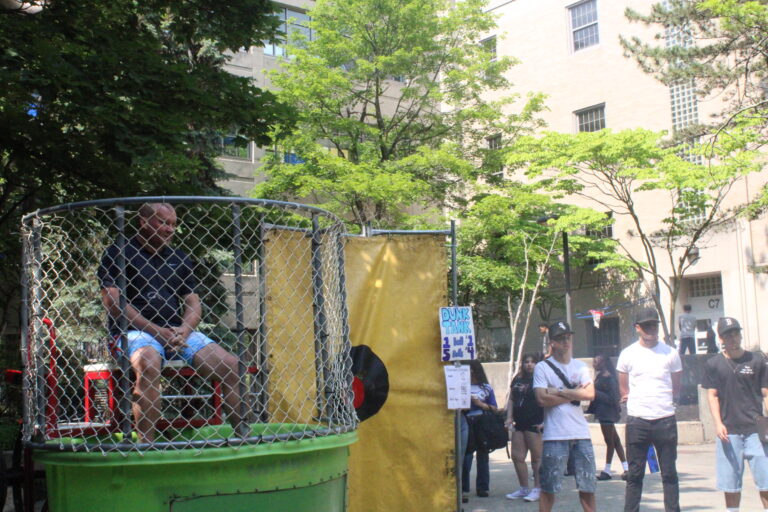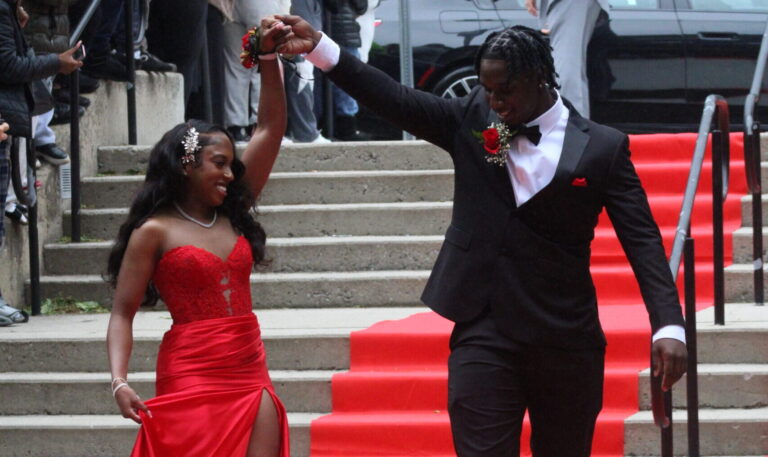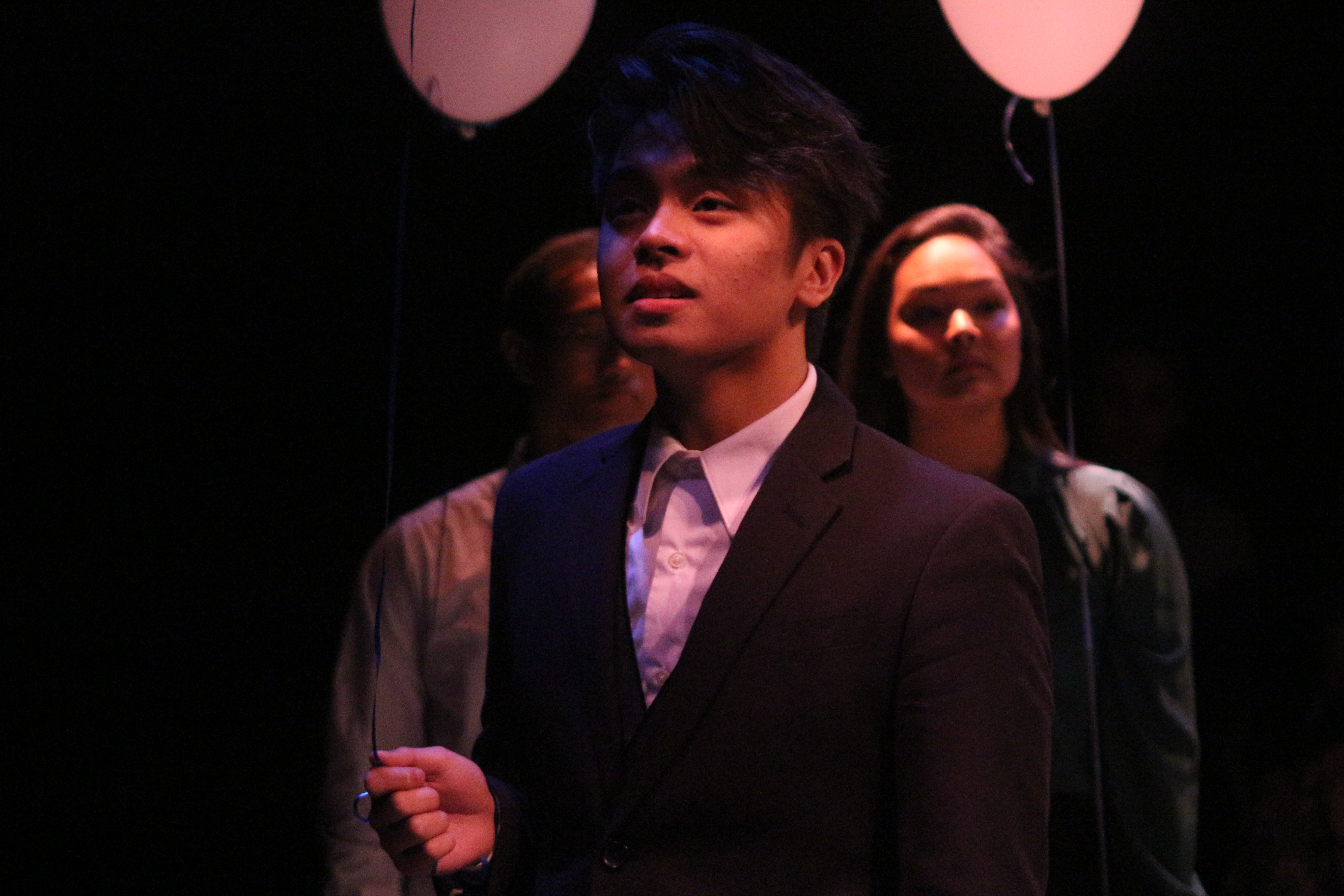
BY AILIN TORO & MAN NGUYEN
Malden High School’s Play Production held their last production of the year, this one titled 8×10. It was titled this because instead of a full length play, the production was 8 different, 10 minute shorts.

There were four opportunities to attend the play, starting with an open dress rehearsal on Thursday, April 27th, and then three more runs including one Friday, April 28th, and two on Saturday April 29th. Tickets were $5, with each show having limited seating of about 80-85 people since the audience seating was on the stage for this show.
The idea of doing various short plays, instead of one long one, isn’t new for Play Pro. Sean Walsh, the co-director of the plays, with the other being Miranda Libkin, says that they have taken this on a couple of times in the past. He says that they decided to do it again this spring because it would be more educational for the students, and that it “was more about the opportunity to give students the ability to take ownership of the process and for the audience to see the actors up close”.
There were two acts, each one consisting of four different plays. The first play was titled League of the Semi Superheroes, which followed the stories of humans with special skills including scuba diving. Throughout the play, the semi superheroes struggled with thoughts of them not being useful, and no one needing them for anything, but in the end they persevered through it.
The second play, Hold for Three, follows the story of two girls trying to get their friend to hold their breath for three minutes by coming up with scenarios to encourage him to hold his breath, including him drowning.
The next play was called Lives of Great Waitresses. It follows the story of four women, three who are experienced waitresses, and one who has just gotten their first job as a waitress where they work. The experienced waitresses judge the new one for seeming like she wants to be liked too much. In the end, we find out the backstories for all of them and get a sense of how they came to be what they are.
Senior Aigula Fitzgerald, who played Melissa, the new waitress, talks about the message for this play being that “if you don’t know how to do something, it doesn’t mean that you’re stupid, and that you can always learn”. She speaks nicely of her co-stars, saying that “they were strong actresses, and all of the character roles fit each actress well”.
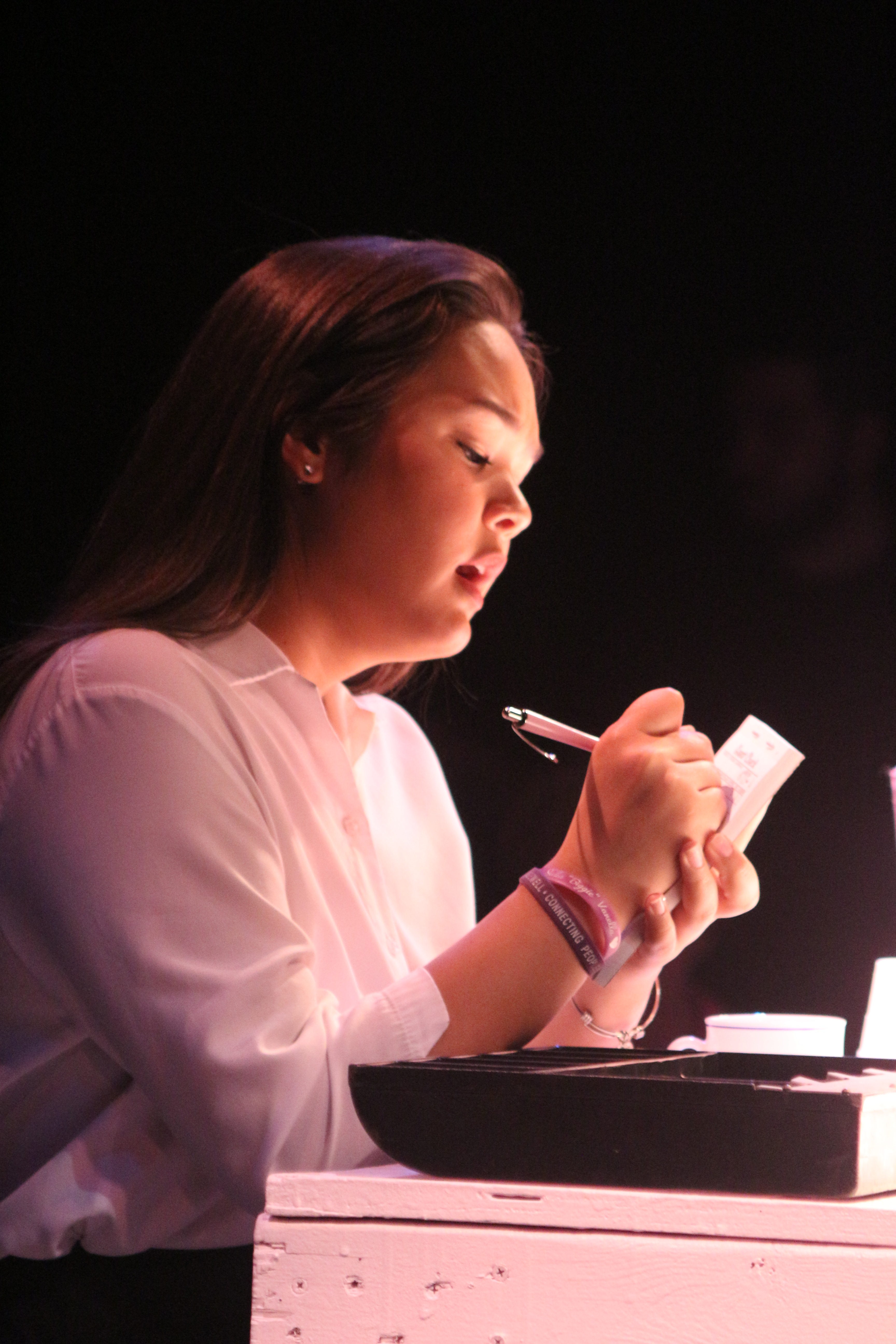
For the fourth play, Two Socks Discuss Loss, it follows the story of two socks who were separated from their original pair, and are now stuck with a different sock. While, the idea for this particular play might seem kind of strange, it was actually a story of the socks learning how to be comfortable and happy with each other, and turned out to be sweet.
The start of Act 2 begins with the Duet for Dog and Bear. This story follows a dog that chases a bear up a tree, which scare’s the dog’s owner, and they begin to argue about the appropriate place for bears in the world while they wait for animal control.
Then, The Double Life of Clem Midnight, is about a cat who went back and forth between two families, making each one think that they were its owners. One of the families eventually had to give the cat up, and the family that did tried to replace that void by having a baby. However, it didn’t work, and the already troubled marriage became unsalvageable.
Jenna Vanella, who played the wife of the family who gave up the cat, says that part of the point of the play was to have the cat represent a marriage, because it shows how “two women fight over a man, and how if something as bad as cheating happens a marriage can be ruined”.
Then, in Andre’s Mother, it has a more serious tone behind it. It’s set at a funeral for Andre, and at the funeral Andre’s boyfriend is present. Karina Matos, who plays the mother, talks about how as the play goes on it is “more about the boyfriend, Cal, wanting the mother to acknowledge his existence” instead of her completely ignoring him. Matos also mentions that the mother’s reasons for not speaking to him could be interpreted in different ways including “disapproval of the fact that he was gay, or that her son died from AIDS, or that she didn’t know about their relationship”.
She sees the message behind the play as being “that parents should try to be involved in their kids lives”, and that “kids should be more open with their parents”. When speaking of her group, Matos says that she felt that they “all had a good dynamic” and adds that “the fact that [they] were able to get the emotion of the play across to some people so that it struck them enough to cry really made [her] feel good about the performance and the performance of [her] fellow actors”.
The final play, Rosie in the Shadow of Melrose also dealt with themes of sexuality. It follows the story of Rosie, who meets a boy at a train stop and strikes up a conversation with him. She is clearly interested in him, but then it is found out that he had just left home because his mom didn’t accept him for being gay. Rosie, while disappointed, still decides to befriend him.
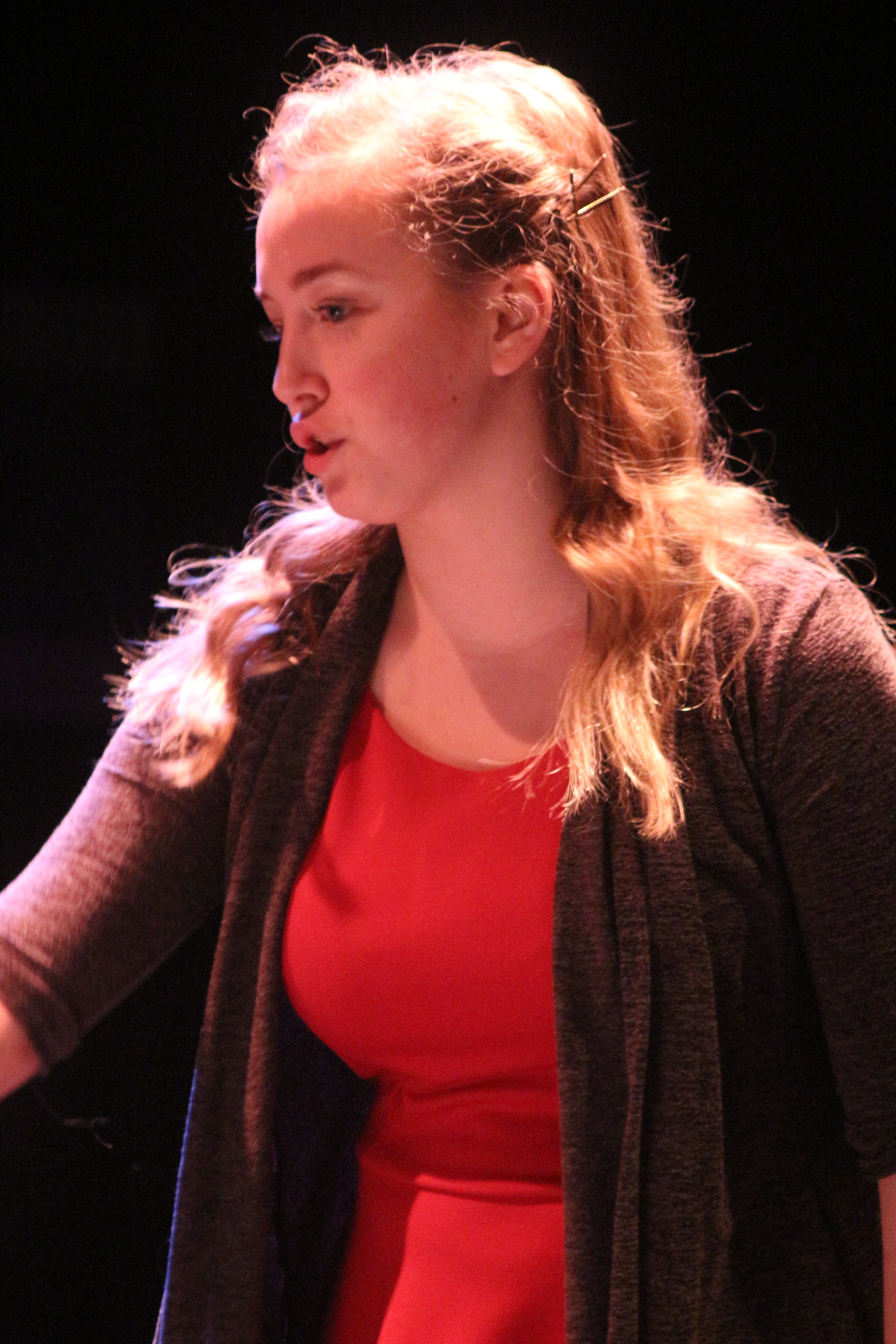
Nicolas Acuna, who plays the boy in the story, talks about how the message behind the play is to “convey how wrong it is for parents to kick their children out for being gay since parents should always love their kids”. He then goes on to talk about how he felt that it was important to include this play because “there were a lot of silly plays in the show overall, and it’s important to cover some serious issues”.
Ariana Teixeira, who played Rosie, talks about how the message she wanted to get across throughout the play was that “everybody is different, and that people need to respect others for their decisions regardless of what they choose to do”.
Overall, the plays ranged from light to emotional, but all of them worked together to make a great show.
When asked about the challenges that they were faced with in this production, Walsh says that the main thing was the short amount of time they had to plan everything, since the entire production was put together in three weeks, from script to performance.
Regarding why they decided to do these specific plays, Libkin talks about how “once [Walsh and her] knew everyone who wanted to perform [they] decided to pick some plays that suited the actors”. A couple of the plays were successful ones that had been done in past productions, and some were just ones they had an interest in doing.
When asked how this year has gone with the new members, Libkin says that she feels that they have had “an incredibly successful year”. She says that “there’s a lot to be proud of in the productions that [they] have done this year”, and that they were “able to create work that was really interesting and really moving”.
Walsh adds that he feels that the actors have had “incredible amount of improvement throughout this year”. says that the whole play was done with “a lot of student independence, and them having the ability to put it together without a lot of teacher help shows how much they have grown”.
With many seniors having to move on to go to college, there were many sad feeling surrounding this being their last play. Fitzgerald described it as being “bittersweet”. Acuna talks about how having to leave is “really sad for [him]”, talking about how “[he] remember[s] everything from [his] first play, until up to this moment, but now it’s all over”. Matos adds that “it’s hard for [her] to picture what next year will be like without [Play Pro]”, but that “no matter what happens, nothing will separate [her] from the memories [she has] of this experience and the lasting impact it has had on [her] life”.
While losing students having to move on, there are still many things to look forward to in Play Pro. For example, Libkin talks about how she is excited for next year because they “have many returning students who are really talented and ready for new challenges”. She adds that she is also “excited to grow [herself], because this will be [her] second year co-teaching the class, so [she] will have a better sense of how the class runs, and be a better teacher for it.”
Overall, Walsh says that he feels that Play Production “did a pretty remarkable job” on their last play of the year. He is very “proud of how quickly [they] were able to put everything together, as much as [he is] about the work as a whole”.


